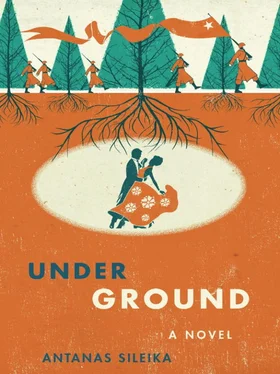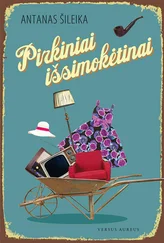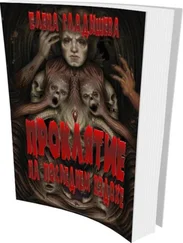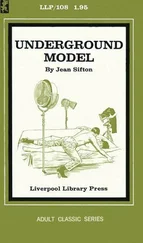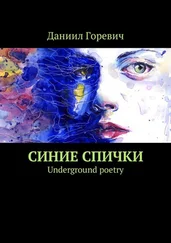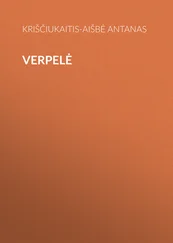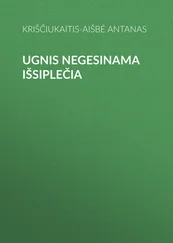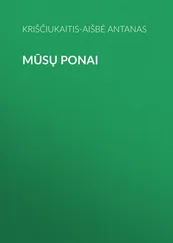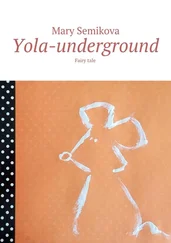Lukas shrugged. They finished their cigarettes and threw the butts into the bonfire, whose centre had collapsed and was now burning less intensely. Elena asked Lukas many questions about his life on the farm, and he told her about it.
“Why are you so interested in all this?” asked Lukas.
“I’m sick of life in town. It’s so dreary there, and we have all these party meetings and education sessions we have to go to. I’d prefer to be on a farm or in the forest.”
“That’s the romanticism of city folk speaking,” said Lukas. “I knew people in the countryside who lived in houses without chimneys, just a hole in the roof, and they walked around barefoot most of the year. Life’s not so wonderful in the country.”
“Don’t patronize me, Dumas. I’m capable of almost anything.”
“It sounds funny to me to hear my code name. Call me Lukas.”
“All right. Don’t patronize me, Lukas.”
She had used his name, and it sounded good on her lips.
They talked for a while longer, and then she stood up.
“Leaving so soon?” asked Lukas.
“I’m going back tonight. My brother is going to walk me partway.”
“We’ve barely had a chance to meet.”
“I come by every once in a while. Are you going to be stationed here, with this band?”
“I think so.”
“Then take care of my brother, will you?”
“She says that to everyone,” said Ungurys. “It’s embarrassing.”
The fireside felt empty after they left. The songs the men sang became melancholy as the evening wore on, and Lukas did not want to let himself fall into that mood. He roused his brother and they returned to their lean-to for the night, but Lukas could not fall asleep for a long time.
FEBRUARY 1945
LIKE BEARS in hibernation, many of the partisans hunkered down during the winter, moving as little as possible to keep their footprints off the snow. Vincentas and Lukas were moved to a bunker three kilometres away where the rotary press, typewriter and radio were kept. Here they studied English grammar and practised listening to the BBC, and finally typed up the underground broadsheets and printed them for distribution to the villages.
Learning English was very difficult because the voice that came over the radio made noises that were barely comprehensible to someone who had only a grammar book to study from. Lukas and Vincentas began to take language lessons with the American farmer. This helped a little, but the American’s accent was vastly different from that of the BBC announcer. The American’s wife served them chicory coffee, black bread and butter, but her hospitality was grudging. She loved her children more than she loved her country, and if the partisans left tracks in the snow, the Cheka would ask questions.
Even in winter, the partisans carried printed sheaves out to the villages and towns to pass on to the couriers. The men posted handbills in prominent places and ripped down Red proclamations. The couriers’ houses were also letterboxes through which personal messages could sometimes be sent. Lukas wrote to his parents to let them know he and his brother were alive and well.
Lukas was used to hard work from his farm childhood, but he had never had to live out of doors for a long time. Even though he and Vincentas were privileged to work and live in a bunker that was heated by night, his fingertips never really warmed up and he hit the keys of the typewriter awkwardly.
There was so much to write about the progress of the war farther west, to exhort the people not to collaborate with the Reds, to forbid the young men from joining the slayers.
Slayers . Lukas found the Reds went straight to the point with their vocabulary. The word came from the Russian Istrebitel . It described Lithuanians who joined the Cheka as auxiliaries to hunt down “bandits” such as Lukas and Vincentas. In return, the slayers did not have to go into the army. Lukas could understand that a desperate man might become a slayer, but this understanding came without any sympathy. In order to preserve himself, the slayer had to hunt down his own people. Some of the slayers tried to play both sides of the game by acting incompetently, but their Red masters soon caught on to this. An incompetent could always be sent to the front. Ever the humane soul, Vincentas tried to moderate Lukas’s hatred of slayers, but without much success.
Vincentas held prayer meetings because he was not ordained and could not say Mass. He listened to the confidences of troubled men, but he could not listen to confession, nor offer absolution. Those who were troubled or religious found their way to him and he offered them some comfort, even if his own comfort was in short supply. Like their friend Ignacas, Vincentas could not easily bear the cold. He was thin and developed a cough.
“Put another couple of sticks in the stove,” said Lukas when he heard his brother’s chest heave yet again as they were working in the bunker one night.
Lukas was typing up the stencil by oil lamp, and Vincentas was waiting to crank out the next issue of their “newspaper.” It was a flattering term for a mimeographed sheet.
“Lukas,” said Vincentas, “are you busy?”
Lukas glanced over at his brother. They were only a metre apart and both sitting at the small table where Lukas squinted at the stencil and typed slowly in order not to make any mistakes.
“I’m typing.”
“Have you ever thought about what it’s like to act ethically in war?”
“Not really,” said Lukas. He spoke slowly between hitting the keys.
“We discussed it in the seminary during the time the Germans occupied the country. We discussed how the normal rules of behaviour were lifted during war.”
“Yes,” said Lukas, slightly impatiently. “People kill people in war.”
“But not without cause. Even during a war, there is a system of values.” This was exactly the sort of talk that Vincentas was known for. He used to wonder about all sorts of abstract notions even as a boy on the farm. He had wanted to know if birds had afterlives, if it was immoral to eat meat, even on non-fast days, if women, since they were not permitted to be priests, had fully formed souls.
“I think there is a system of values, yes,” said Lukas, listening with half an ear. “Even during a war.”
“So are we at war?”
“We fire at one another.”
“But no one declared war between the Lithuanians and the Reds, did they?”
“No, because it’s to the Reds’ advantage not to. They call us bandits.”
“And how is a bandit to act ethically?”
“But we’re not bandits. I’ve just said to you, we’re at war.”
“I’m not sure I could ever kill anyone.”
“With any luck, you won’t have to. But I hope that if somebody is threatening me or one of the others, you’ll defend us.”
“I’ll try.”
Lukas became slightly exasperated with his brother. “Think of the world we live in. Think of what we’ve seen already—our people killed by the retreating Reds in ’41, the Jews cut down, soldiers shot to pieces, children blown up under artillery fire. You’re talking as if you’ve never seen violence.”
“I’ve never had to carry arms before. I’m really a pacifist, you know.”
“The Reds will thank you for not defending yourself. Then they’ll shoot you dead or haul you away to Siberia.”
“But I don’t think I could ever shoot anyone.”
“So you won’t be covering my back?”
Vincentas ignored the question.
Lukas stopped trying to type. He turned to his brother, intending to give Vincentas a good talking-to, the kind their father used to give the boy when he was philosophizing too much on the farm. But Lukas held back. His brother was hugging himself for warmth even though the wood stove made the underground room quite comfortable. Lukas would have to speak to Flint about getting Vincentas out of the partisans. Perhaps there was some distant village where he could live semi-legally as a clerk.
Читать дальше
